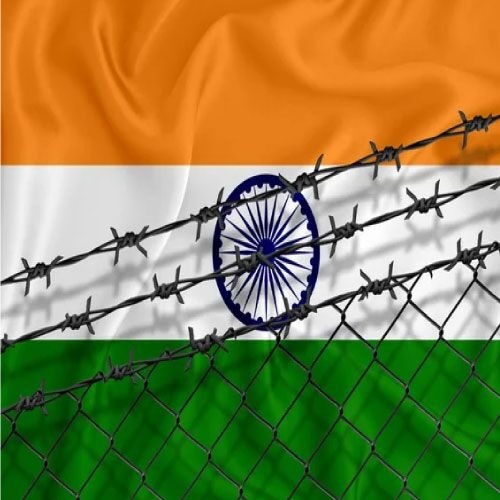The Bhartiya Janata Party (BJP) under Prime Minister Narendra Modi has entered its third consecutive term in power in India. His strong belief in Hindutva ideology and the concept of “Akhand Bharat”, a vision of India as a Hindu-majority nation, has significantly impacted not only India’s internal stability but also disturbed the strategic stability of South Asia. Since the BJP’s ascendance to power in 2014, India’s foreign policy posture has been ambitious and overtly mirroring a rising power. It has an increasingly overbearing and interfering approach to regional geopolitics, particularly towards Pakistan.
Yet, over the course of the BJP’s three stints in power, the party under the leadership of Narendra Modi has committed serious mistakes. To project India’s image as a prosperous and developed nation abroad, his policies have backfired, as observed in the aftermath of the four-day crisis against Pakistan, failure to harness collective diplomatic support in the West and the region for its anti-Pakistan propaganda resultant strained ties with neighbours and declining influence in key international organizations, including the Organisation of Islamic Cooperation (OIC), an ample proof of the setback that India has faced on the diplomatic front.
During Modi’s tenure, the two countries continued to be marked by bitter relations, and Kashmir has remained the central focus of Modi’s policy towards Pakistan. Over the years, India has witnessed a series of terror attacks, which were mostly during Modi’s tenure. These attacks included the 2016 Uri crisis, the 2019 Pulwama-Balakot crisis, and the recent Pahalgam attack. After all these attacks, the BJP government viewed that any such attack would be likely to be planned and coordinated by Pakistan without presenting any evidence. After the Pahalgam crisis, while addressing the nation on May 12, 2025, Prime Minister Narender Modi stated that “terror and talk cannot co-exist and that terror and trade cannot go hand in hand”. The BJP government was engaged in spreading fake news to malign the image of Pakistan, for instance, after the Indian strikes on May 7, Pratik Sinha, Co-founder of Alt News, said Pakistan tried to convince its citizens that it had destroyed Indian fighter jets by circulating old images and video footage. But on the very next day, India uptick its disinformation using it as propaganda.
Moreover, during election campaigns, Modi’s administration has always highlighted national security concerns to exploit the anti-Pakistan narrative to attract a larger vote bank. However, this ploy has helped the BJP by turning the anti-Pakistan rhetoric and local communal violence to its domestic advantage. Journalists, the press, and security analysts are raising concerns over Modi’s policies. The Indian nation and international community have observed that during his regime, India has always been responsible for escalating tensions in the region, primarily with Pakistan, which puts the entire world into anxiety because both states are nuclear powers. In the overall mosaic, Narendar Modi is not taking advantage of opportunities for conflict resolution, repeatedly failing to engage in dialogues. The opposition and the civil society have been blaming his government for risking India’s national security by instigating tensions with Pakistan for domestic political mileage. Unfortunately, India lacks the legitimate position that is necessary to advance the cause of peace in the region.
To be a responsible regional player and to be the Net Security Provider, it must manage its bilateral relationships in alignment with global standards. However, in this scenario, the BJP government fails to address the numerous internal and external leadership challenges. Internally, it has polarized majoritarian politics, erosion of democratic institutions, inter-community violence, and the centralization of power has weakened national unity and credibility. Externally, it has strained ties with all neighbouring states, a refusal to engage in regional dialogues, and keeping the South Asian Association for Regional Cooperation (SAARC) defunct. A visible decline has been noticed in India’s influence in the world. Congress Working Committee Member, Anand Sharma, said, ‘a recalibration in international diplomacy was the need of the hour’. Moreover, it is necessary to retain India’s stature and standing in the comity of nations.
These issues are mounting especially as questions about succession, internal democracy and policy direction become more complex. There is an excessive concentration of decision-making in Prime Minister Narendra Modi’s hands. The cabinet ministers are often seen as implementers rather than policymakers, frequently relying on Prime Minister Office (PMO) driven policies rather than taking initiative. The BJP’s government is facing a range of social and geopolitical challenges. India’s global reputation has weakened over time. To cope with these challenges, it should focus on diplomacy and regional cooperation to ensure long-term internal as well as regional stability, democratic strength, and adopt a problem-solving approach by building trust and result-oriented peace talks. It must uphold a value-based foreign policy to stay loyal to its aims and aspirations in the shifting global power dynamics.
This article was published in another form at https://strategicforecast.cissajk.org.pk/?p=22608
Shamsa Kanwal is currently working as HR & Admin Assistant at the Center for International Strategic Studies (CISS), Islamabad. She holds an MBA degree in Human Resource Management. Her research interests include geopolitics and nuclear politics in South Asia.

